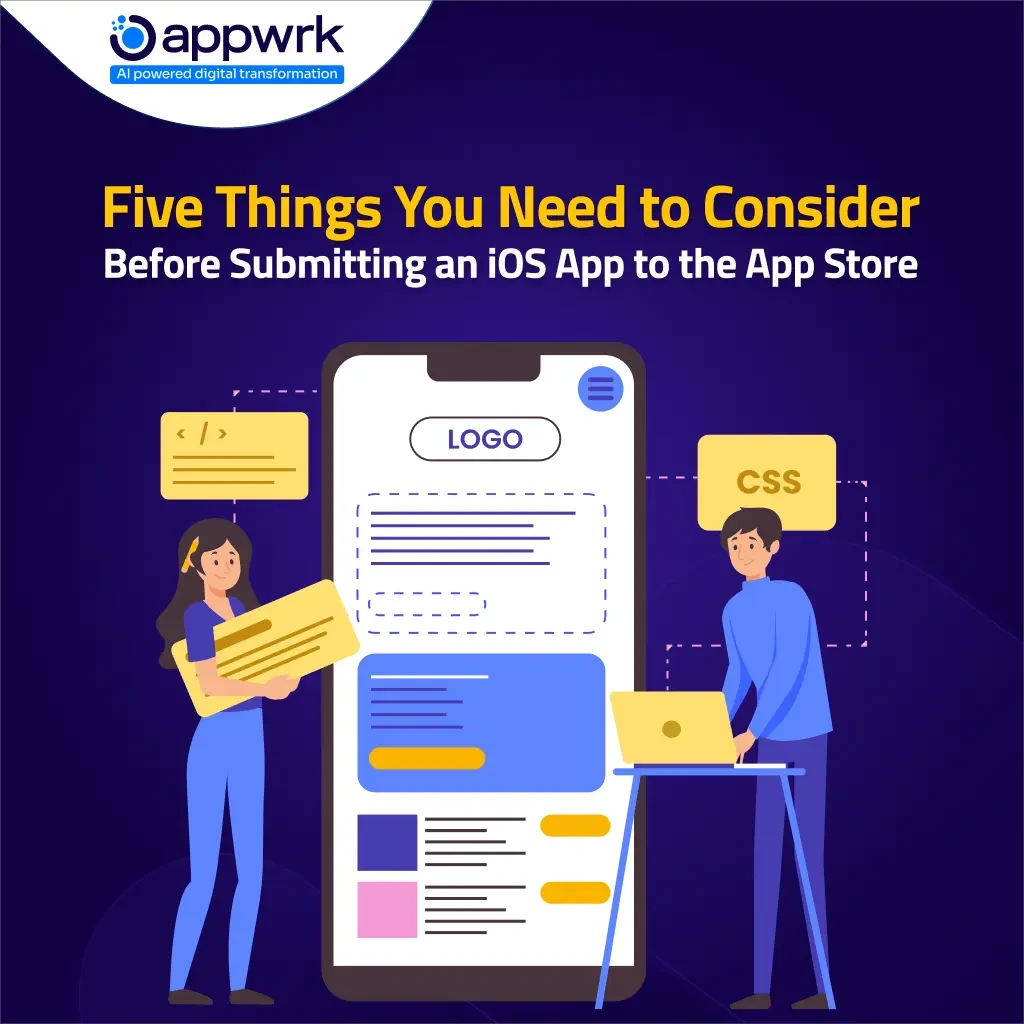How Long Does it Take to Build a Mobile App?

In today’s competitive business world, building an innovative mobile app is a must to reach a broader range of customers. An app can become a direct marketing channel for the business to experience exponential growth by creating brand value and gaining a loyal customer base. Mobile apps became popular due to their portable feature that can increase sales and help you communicate 24/7 with customers. However, the mobile app development timeline is lengthy and alters with every new app idea. The prerequisites of building a high-quality app depend on the process and complications involved in it.
Below is a thorough guide that explains each step involved in mobile app development. To avoid any skepticism, consult a well-established mobile app development company.
Table of contents
Key Stages of The Mobile App Development Process
The mobile app development stages segregate into five parts: planning, design, development, testing, and deployment. A thorough explanation of each step will make you understand how long does it take to build a mobile app.

Planning Stage
This is the fundamental phase in the mobile app development timeline. In the planning stage, the initial step is to clarify the app’s objective and identify the target audience. For this, do thorough market research, determine your audience’s desires, and work on them rigorously. However, if your idea is similar to a previously launched app, do not sit back or start thinking afresh; look for the loopholes and launch a better app. Once you have conceptualized your app as per the target audience, the next step is specifying capital investment and techniques.
It is vital to have an excellent investment strategy to achieve a successful end product. The willingness to invest a specific amount in the app’s development infers the scope of features it can incorporate. The more complexity and features your app will have, the more investment it would require. Therefore, you must pre-decide the scope and objective of your app and, henceforth, choose the best app development company as per the requirement and capacity of capital investment.
Designing Stage
Once you have decided on the company, ensure your app developer focuses on technicalities such as touch gestures, colors, conformity to OS design standards, app layout, and UI design. This is the stage where you bring all your ideas together, and the expert developer creates a wireframe or prototype to give you an idea of the app’s interface. The number of days required to present a wireframe differs for each app as per its complexities.
After a few feedback cycles, the developer will design a final working prototype. Take this final prototype to the users for testing and collect feedback. While collecting the feedback, focus on the key points like the user’s complications or issues in the interface. Before moving to the development stage, make sure there are no errors.
The user experience is the most crucial aspect of the app development process. It alone can decide whether the customer wants to keep or uninstall the app. The more effortless navigation a developer provides, the more it will attract customers. A mobile app that is user-friendly, fast, and innovative tends to reverberate more with users.
Developing Stage
Once the prototype is ready, the next stage is developing the mobile app. This stage takes the maximum time as the development is divided into two phases. Namely, front-end and back-end development; the development of both phases takes place simultaneously. Front-end development covers the elements and features of an app that the user can see while they use it. At the same time, back-end development takes care of server-side software.
Various development platforms are available such as –
- Native Apps – This is a process of developing an app that operates on a particular platform only. For instance, android apps on platforms like React Native or iOS apps on platforms like Swift. While they give the best user experience, they also require a higher skill level to create them.
- Web Apps – These apps are simple, cheaper to develop, and compatible with multiple platforms. They can be built using CSS, JavaScript, or HTML5.
- Hybrid Apps – These are the latest mobile apps in the market that combine Native and HTLM5 programming strengths. The developers write the code in HTML5 and place a native device wrapper around it.

By the end of this stage, you will have your product ready. Although, you must make the app as secure as possible and add dynamic features. Do not expect your product to be prepared to launch in the market by now. You will have to undergo a series of tests and trials to bring the final product to the customer.
Testing Stage
Launching the app in the market without the beta test can be disastrous. A strict beta test will help you check the app’s capability to run between multiple users. It will help you gain visibility in the play store and user feedback. Before conducting a beta test, keep in mind the following points –
- Define your target audience – This will help you find the right customer for your app, giving you the relevant market analysis.
- Fix the bugs – If you see any glitches during the testing, try removing them before bringing your full version to the larger audience.
- Conduct surveys – Ask your close ones to answer as many questions for the beta version of your app and help you solve the errors. Constructive criticism can help you put forth the best within you.
Deploying Stage
Showing the world your app is not that easy. Getting into an android play store or iOS app store is no cakewalk. You must fulfill a set of guidelines before you get validation. Once you submit your application forms, they are reviewed minutely.
Apple App Store – iOS apps are required to go through some strict policies before they can enter the play store. To maintain the quality and ratings, Apple checks all the reviews, design, content, and app functionality. Generally, it takes two days for the application to be approved. Do not get agitated if it is taking longer than that. Apple does not want any clutter or apps soaked with bugs in its store.
Step by Step Process to Submit An App To the App Store Using App Store Connect
AppWRK
Google Play Store – Android apps must undergo the same strict inspection process. Their contents, designs, structure, ratings, and functionality are also checked. If you are a first-timer, the Google play store may take up to three days to approve the application. If it is your second or third app, it will update within two hours on the same day.
APPWRK
Factors That Impact the Mobile App Development Timeline
Planning alone is not sufficient to develop an app. It is necessary to check the factors that might affect the app development timeline.
The Complexity
Whether you want an android app or an iOS app, the timeline of its development differs on its complexity level. The more features an app incorporates, the more complex it becomes. And this complexity increases the time it takes to develop the app. To overcome these challenges, you must find a developer who can code efficiently and create a compact design close to 100 MB.
Scope of the App
If you change the project’s scope and alter the needs as and when you think fit. This not only increases the time in app development but also alters the project’s cost. You may find this inconvenient and push the developer to finish the project as soon as possible. Well, it will undoubtedly become a disaster if you push the project to its end without considering the complexities.
The Precise Requirements
Another reason that can impact the timeline is the incomplete or late submission of the pre-requisites required for the app development. If you deposit the initial documents needed for app development late than the expected time, it will postpone the process. This slight delay will impact the whole timeline and defer the project.
The Accuracy of the Final Result
A right start draws a proper flow of success towards a greater end. If there is a slight error in any one step, the whole process will get affected. One careless mistake can adversely impact the timeline, which can alter the accuracy of the final result. The customer may not like the app’s experience, which can alter the ratings.
How APPWRK Can Help You with Mobile APP Development?
At APPWRK, we transform your app idea into digital reality with a skilled team and top-notch mobile app development tools. Our mobile application development services include Native mobile app development, Hybrid mobile app development, progressive web app development, and Wearable app development. We don’t just jump to the making of your app. We follow a procedure, and it has the following steps –
- Discuss your requirements with us- We will contact you after receiving your requirements better to grasp your business aims, demands, and needs.
- Appoint dedicated professionals- We will appoint a team of mobile app developers with skill sets that align with your technical requirements. We will assign them to your projects based on your chosen project plan.
- Complete on-time delivery- Our developers will constantly share the progress of your project daily and will deliver the project within the set deadlines.
We are a team of dedicated professionals readily available to cater to your needs. We assure you that you will get all the technical support after completing your project. Our expert mobile developers will support you as much as possible if there is any error.
Conclusion
In today’s era of technology, mobile is indispensable, and it has made it possible for business owners to stay connected with us 24/7. It is one of the best tools to fight the competition in the market. We at APPWRK plan to make it easy with feasible pricing offers and a dedicated team. The reason why our company is the best app development company.
Now that you know what we can do for you, do you have the next big idea you keenly want to turn into reality? Contact us for mobile app development, and hire dedicated mobile app developers who will be happy to deliver you the best possible solutions.
Let’s make your dreams come true!
Related Links:
About The Author







 Free Quote
Free Quote
















































